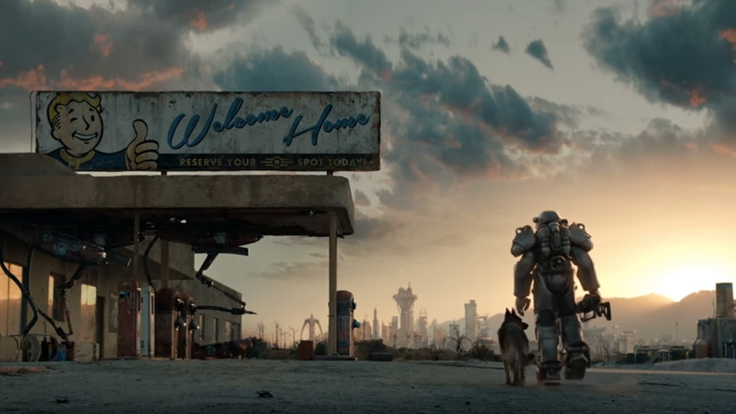Fallout 4 developer faces $1m lawsuit from The Wanderer singer over 'repugnant' ad
Folk singer Dion DiMucci called the Fallout 4 ads in question 'repugnant and morally indefensible'.

Fallout 4 developer Bethesda Game Studio's parent company ZeniMax Media is facing a lawsuit from 1960s folk singer Dion DiMucci over the use of his music in the post-apocalyptic RPG's commercials. Best known for his hit songs Runaround Sue and The Wanderer, the singer is suing the gaming company for failing to abide by his terms when using the latter song in their ads, which he described as "repugnant and morally indefensible".
According to the lawsuit filed in a California state district court, Dion found the ads "objectionable" since they featured "repeated homicides in a dark, dystopian landscape, where violence is glorified as sport".
"The killings and physical violence were not to protect innocent life, but instead were repugnant and morally indefensible images designed to appeal to young consumers", the complaint reads. "In 'The Wanderer', Dion gives life to the story of a sad young man who wanders from town to town, not having found himself or the capacity for an enduring relationship. The song describes isolation during coming of age."
However, the complaint accused the Fallout makers of using the song in commercials where "the protagonist, a wanderer, roams from one location to the next, armed and hunting for victims to slaughter" without Dion's consent.
It adds that the commercials in question (embedded below) "have no redeeming value" and simply "entice young people to buy a videogame by glorifying homicide, making the infliction of harm appear appealing, if not also satisfying".
The complaint notes that a contract signed by record label Universal Music Group and Dion stipulated that the song could legally be used in Fallout 4 ads. However, under the terms of the agreement, Dion had the right to refuse its use in the ads if he did not approve of the content.
As per the arrangement, he could also have renegotiated with the company for a higher licensing fee, the complaint states.
However, Dion claims that ZeniMax never reached out to him regarding the use of his song and was not aware of how his music was being used until after the commercials ran. The suit states that the singer "could have used his right to refuse consent" to persuade the game publisher to tweak the ads' scripts to reflect "the story of a post-apocalyptic struggle for survival without craven violence".
"Alternately, he could have priced into his fee adequate compensation to safeguard himself against the potential loss of goodwill from being associated with the immoral images in Defendant's script", the document reads.
Dion is seeking $1m in damages from the case, in addition to legal costs, and wants the ads taken down noting that "their continued presence is an ongoing irreparable injury to plaintiff".
IBTimes UK has reached out to ZeniMax Media and Bethesda for comment.
© Copyright IBTimes 2025. All rights reserved.





















